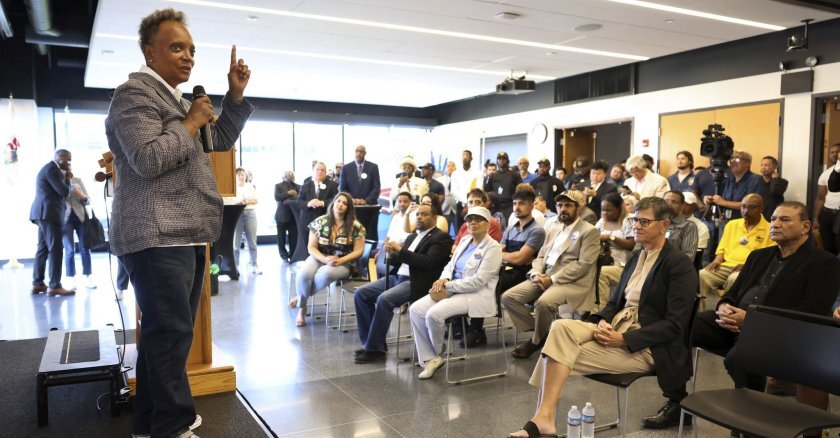Many of the people I ran into, including former employees, co-workers and students, I had not seen for years. The esprit de corps they shared prompted me to think about government centers in a different way. Not only are they places for public officials to conduct official business; at their best, they are also destinations, town centers and places for residents to meet, interact and celebrate what makes them and their communities unique and special. They are, or should be, the souls and hearts of their communities.
For residents to feel this way about their government centers, leaders must intentionally make them more than places where residents transact business and policymakers deal with the issues of the day. They must be welcoming, so residents feel safe and at home, with a collective sense of ownership for not only the facilities but also for the business of the people that takes place within them.
I experienced this feeling at the holiday reception. In the City Hall atrium on my way there, I stumbled upon another event, one honoring a longtime husband-and-wife African American architecture team. I had not seen them for decades, and it elevated my spirit to know that a Black architecture firm — one that got started because of the city’s minority contracting program — had successfully operated for more than 40 years.
As I left the atrium and strolled up the marbled steps to the second level, I ran into an old tennis buddy of mine. He was on his way to the reception too, but he had an added motivation for attending: His ex-sister-in-law, Dolores “Dee Dee” Kenniebrew, was being honored as one of the original members of the '60s “girl group” the Crystals. If you are old enough, you might remember “He’s a Rebel,” “Da Doo Ron Ron” and some of the vocal group’s other hit tunes. Kenniebrew had been living in Atlanta for decades, and if other Atlantans were anything like me, they didn’t know it.

What made meeting her more special was that she knew who I was. It turns out that back before I was a city councilmember, her sister had worked for me at the local cable company in an administrative support role. Kenniebrew remembered that. She took me by the hand and led me to where her sister and her 47-year-old daughter were sitting. I had not seen either of them for 37 years. It was a fantastic reunion, and it would not have happened were it not for the city-sponsored reception occurring that day.
I disagree. When local government officials honor residents for life accomplishments, it not only means a lot to those being celebrated but also creates a sense of pride among residents — a sense that greatness can spring from the streets and homes of their neighborhoods. We all enjoy cheering and pulling for the hometown team. The fact that these honors often take place before the entire governing body, and sometimes are carried live on local government TV channels, adds to the specialness of the occasions.
Like everything else, there are always downsides to consider, including publicly honoring selected residents when there are often many other worthy ones and not enough public gatherings to honor them all.
That raises the issue of the structure of official local government meetings. After the receptions, the official monthly council meeting was convened. As is customary, it began with a series of proclamations (including the ones honoring Kenniebrew and the architects), followed by a period of public comment giving any member of the public up to two minutes to address the council on any subject. It was only after two-and-a-half hours that the council was able to take up its legislative agenda, so those interested in a particular policy item — residents with important and pressing matters — had to wait, some anxiously, for hours. To say the least, some were not happy.
One possible solution might be for local governments to have two kinds of official meetings: One would be completely focused on public engagement, essentially a “community” council meeting: celebrating exemplary residents and receiving public comments on municipal issues; the other would strictly focus on legislative matters.
There are good arguments for both approaches, but what must be kept in mind is that local government centers can be places where residents do much more than transact business, seek security and refuge, and pay their taxes. They can unite us, celebrate our talents and rich diversity and, above all, provide an opportunity for public officials to recognize us for contributing to the collective souls of our communities.
Governing’s opinion columns reflect the views of their authors and not necessarily those of Governing’s editors or management.
Related Articles














